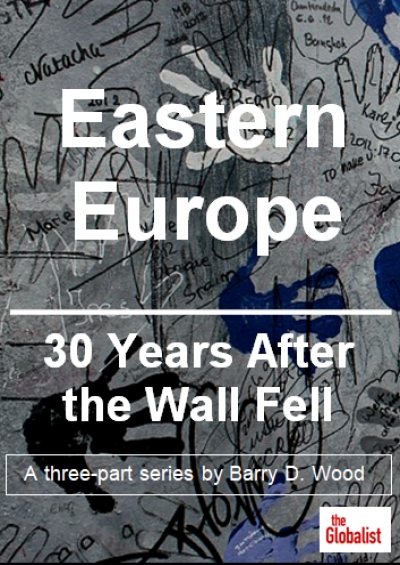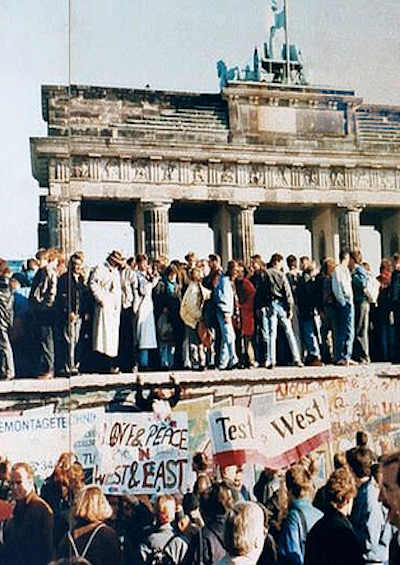Thirty Years After the Wall Fell: Part 3 — The Balkans
How the market economy changed lives: East Europeans assess 30 years of freedom.
November 10, 2019

My engagement with Europeans who grew up on the east side of the Berlin Wall began in the 1990s. At the time, I was a correspondent based in Prague, which gave me the opportunity to travel throughout the region.
Later, in an effort to more directly connect with ordinary people in a dozen diverse post-communist lands, I traveled 2,500 miles by bicycle from Estonia to Albania. During that journey, I met dozens of wonderful people who generously extended hospitality to a lone cyclist.
I have stayed in touch with several of them and here are their personal stories of living through momentous change.
Part 3 — The Balkans
Bulgaria and Romania joined the European Union in 2009, five years after Central Europe and the Baltics.
The poorest region within the EU, the two countries have been doing surprisingly well in recent times although incomes lag well behind those of Central Europe.
Adrian Maran, hotel manager, Timisoara, Romania

When I first visited Timisoara in western Romania in 1995 Adrian was the porter at a city hotel. His English was good and we got acquainted.
On my next visit a few years later, he had switched his burgundy jacket and gold epaulets for the shirt and tie of a front desk manager. During my bike trip Adi was a great help putting me up overnight and transporting me and my bicycle from the airport.
He’s now the general manager of a new Timisoara hotel. One thing about Adi hasn’t changed. He remains cynical and angry with the shortcomings of Romania’s fitful democracy.
“I have no time to reflect as time is my enemy…and Romanian people also. Idiots here thought the EU would bring them happiness and make them rich. But I was an idiot too thinking that America would come and help us to be better.
Remember what I told you…Russia never sleeps and repercussions always follow stupidity. Nowadays our young people, raised and educated by us, leave the country for Germany, England and France. But they find out they’re just ‘gypsies from Romania’ begging for money.
Meanwhile we country people never listen to our corrupt politicians. We work hard just as always. We keep money in our pockets, not in corrupt banks that steal. Our dreams remain in the shadows, unfulfilled.”
Dorina Tufis, restauranteur, Iron Gate, Dobreta Turnu Severin, Romania

I met Dorina in 1999 during the American bombing of Serbia just across the Danube from where she and her husband Silviu had turned an old German river boat into a restaurant.
She was one of the first entrepreneurs in this part of Romania. Dorina and her husband had spent a year in Australia but returned because they missed their families.
I’ve been back to see the Tufis family twice. The restaurant business is OK but not great because of increased competition. Dorina’s theme is corruption, it’s terrible and absolutely pervasive.
“We are fine but the work is constant. In communist times you couldn’t have a business, so it’s hard for me to compare.
In communism we were kept in a cage but now it’s a free for all with no rules. You have to pay bribes to get things done. Education was better under communism because now if you have money you can bribe teachers and get a diploma.
We need a king in Romania, someone who could set high standards that people would try to reach. It’s hard to keep staff because people go to France or Italy and make 10 times what I can pay here. But it’s not all bad. Our area is developing.”
Takeaways
Bulgaria and Romania joined the European Union in 2009. The poorest region within the EU, the two countries have been doing surprisingly well.
In communism we were kept in a cage but now it’s a free for all with no rules. You have to pay bribes to get things done.
Nowadays our young people leave the country for Germany, England and France. But they find out they’re just gypsies from Romania begging for money.

